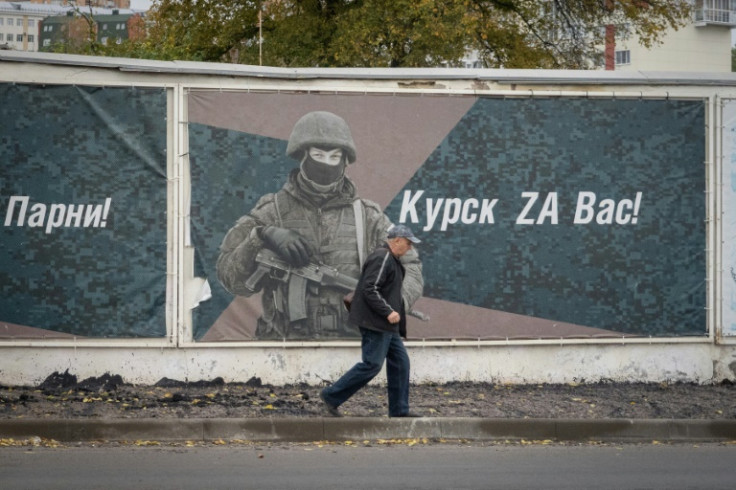North Korea Sent 10,000 Troops To Train In Russia, US Says

North Korea has sent 10,000 troops to train in Russia and likely fight Ukraine in weeks, Washington said, as Seoul warned Tuesday that the accelerating deployment posed a "significant security threat."
Seoul has long accused the nuclear-armed North of sending weapons to help Moscow fight Kyiv, and after Kim Jong Un signed a mutual defense deal with Russian President Vladimir Putin in June, Pyongyang is alleged to have moved to deploy soldiers en masse.
North Korea has denied sending troops, but in the first comment in state media last week, its vice foreign minister said that were such a deployment to happen, it would be in line with international law.
Ukraine's President Volodymyr Zelensky warned North Korea could "soon" have as many as 12,000 soldiers on Russian soil, while US President Joe Biden slammed the deployment as "very dangerous."
North Korea "has sent around 10,000 soldiers in total to train in eastern Russia that will probably augment Russian forces near Ukraine over the next several weeks," Deputy Pentagon Press Secretary Sabrina Singh told journalists.
The deployment is "a dangerous expansion of Russia's war", NATO chief Mark Rutte said, adding it was "a sign of Putin's growing desperation."
Rutte said more than 600,000 Russian soldiers have been killed or wounded since the conflict started in 2022, adding the Kremlin was unable to sustain the invasion without foreign support.
Speaking in Brussels after a briefing with South Korean intelligence officials, Rutte said he could confirm that North Korean military units had been deployed in the field in Russia's western Kursk region.
South Korean President Yoon Suk Yeol said Tuesday that growing military cooperation between Moscow and Pyongyang was "a significant security threat to the international community," and warned Seoul was considering "countermeasures."
Seoul's spy agency told lawmakers that even high-ranking North Korean generals "could move to frontline areas", as it flagged acclerating military cooperation between the two countries.
It also warned that the North was preparing for another satellite launch after a failed bid in May, "using advanced components and Russian technological assistance," lawmaker Lee Seong-kweun said after an NIS briefing, according to a transcript obtained by AFP.
Experts have said that in return for the troops, North Korea is likely aiming to acquire military technology, ranging from surveillance satellites to submarines, plus possible security guarantees from Moscow.
The North is also clamping down domestically on the spread of information about the Russia deployment, Lee said citing the spy agency, with "families of deployed soldiers being falsely informed that they are in training."
North Korea's foreign minister travelled to Moscow this week, Pyongyang's official Korean Central News Agency said Tuesday, without giving details.
South Korea, a major arms exporter, has previously said it would reconsider whether to supply weapons directly to Ukraine, something its Western allies have long called for. Seoul has so far resisted the move due to longstanding domestic policy.
Seoul has already sold billions of dollars of tanks, howitzers, attack aircraft and rocket launchers to Poland, a key ally of Kyiv.
EU chief Ursula von der Leyen also warned that North Korea sending troops for the first time represented "a significant escalation of the war against Ukraine and threatens global peace."
She made the comments after a phone call with Yoon, during which she assured the leader that "the EU's response to this development will center on cooperation with the Republic of Korea and other like-minded partners."
The United States likewise told China -- an ally of both Moscow and Pyongyang -- it should be "concerned about this destabilizing action by two of its neighbors, Russia and North Korea," State Department spokesman Matthew Miller told reporters.
© Copyright AFP 2025. All rights reserved.





















